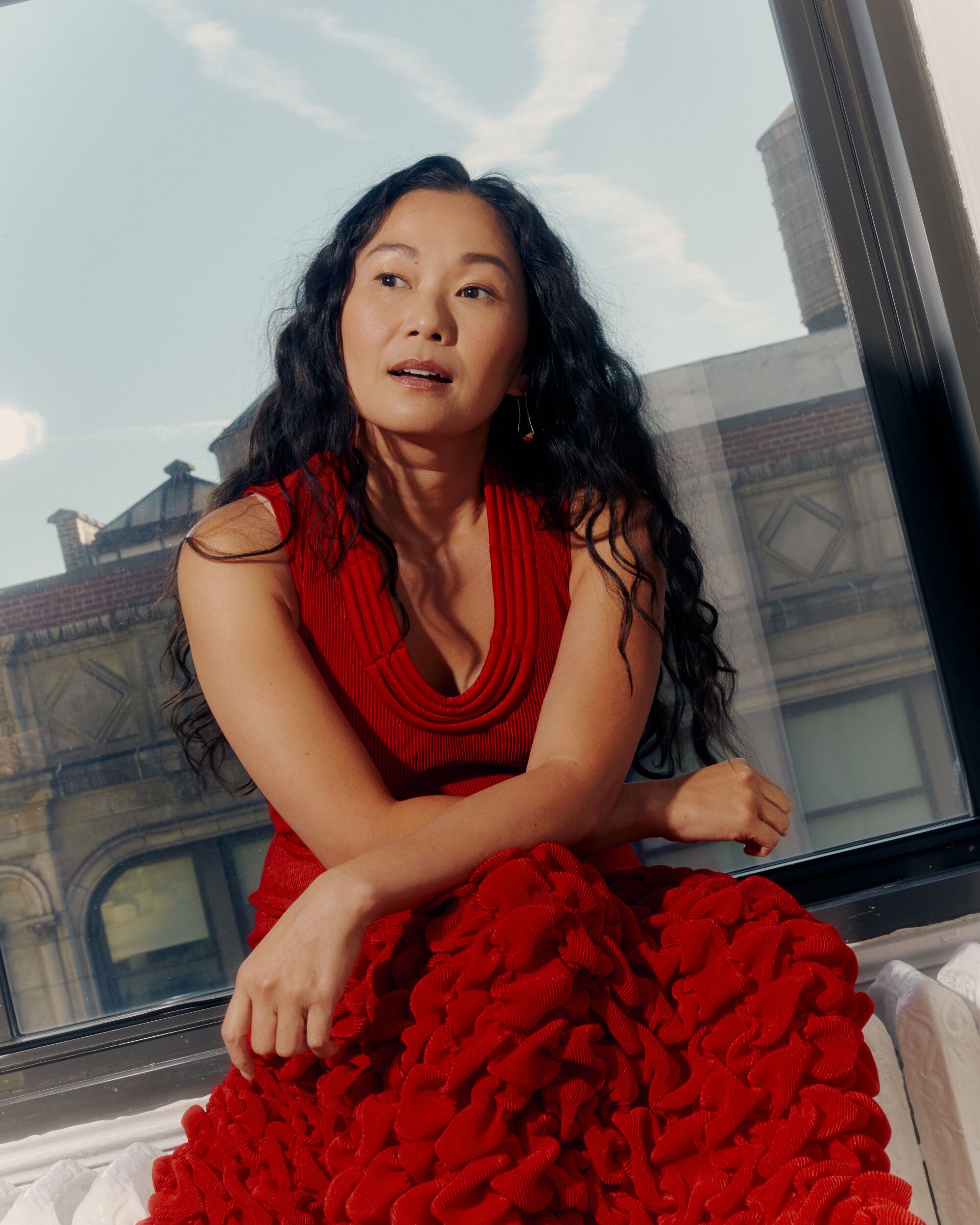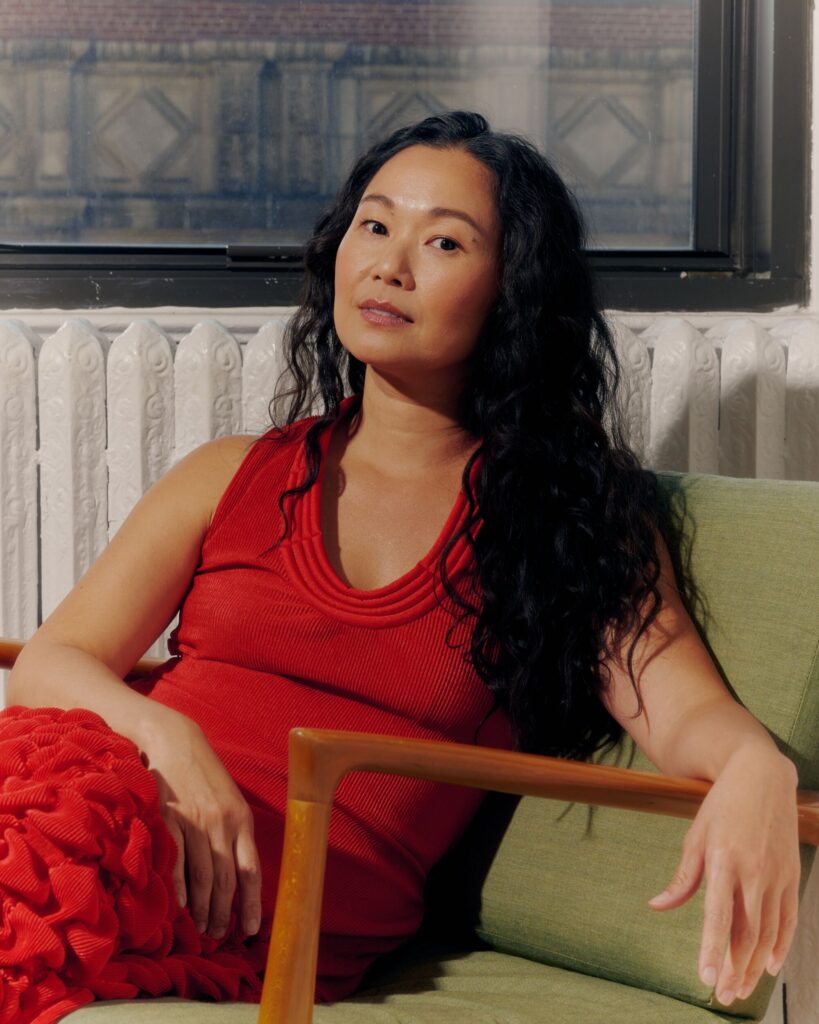When Hong Chau’s agent told her Darren Aronofsky was considering casting her in “The Whale,” her answer was simple: “I’m so tired, I don’t have time for this.” She had just become a mother for the first time at 41, and, as she says in a recent interview, “I didn’t really want to go back to work.” The “Whale” team wanted an audition tape, a time-consuming process. “It just felt like a monumental task that I was not up for at the time,” she says.
But her agent kept pressing, so Chau made the audition tape. Now she’s among those generating Oscar buzz for the film, about a reclusive, morbidly obese English teacher, Charlie (Brendan Fraser), desperately eager to make amends to his daughter (Sadie Sink). Chau plays his best friend and caregiver, Liz, who administers tough love and tries to keep him from destroying himself (even as she can’t stop his unhealthy relationship with food). It’s a no-nonsense performance from an actress coming into her own.
In addition to “The Whale,” Chau can be seen in two other films this fall, as a Portland artist in Kelly Reichardt’s “Showing Up,” and as the house manager of a satirically haute island restaurant in “The Menu.” And she’ll soon be seen in Wes Anderson’s “Asteroid City.”
As it turned out, the very circumstances that tempted her to say no to “The Whale” made her happy she said yes.
“With the combination of the story and becoming a mother at 41, I recognized the pain and the beauty in Charlie,” she says. “There’s this ticking clock he has to try to make whole the one thing that he’s going to leave behind that really matters. And I was moved by that.”
Hong Chau poses for a portrait inside the A24 Film offices on October 6, 2022.
(Evelyn Freja / For The Times)
Reached by email, Aronofsky expressed his gratitude that she signed on to the film. “Every take with Hong is a gift, a discovery, a trip into the unknown,” he writes. ”She is a master improviser of meaning and emotion.”
Chau says the admiration is mutual. “Darren loves actors,” she says. “I don’t know if all directors love actors. He understands what we do. He understands that actors have very sensitive instruments and that we’re not robots who just spit out lines take after take.”
Chau was born to Vietnamese parents in a refugee camp in Thailand and grew up with them largely in New Orleans East, an area of mostly Vietnamese immigrants and Black residents. It’s a remarkable story of resilience and opportunity, but she doesn’t like to claim it. She insists it’s not hers.
“My parents made that journey,” she says. “They were brave. They took that risk. They suffered. They came here and built a new life without anything. I was just somebody that they were responsible for. I wasn’t responsible for their stories. I feel very proud of them and part of me just feels a little awkward that I am somehow receiving the benefit of their story. They should be the ones who are receiving those compliments and that sort of admiration.”

Hong Chau.
(Evelyn Freja / For The Times)
In 2017, Chau drew attention for her role as a disabled Vietnamese refugee opposite Matt Damon in Alexander Payne’s eco-satire “Downsizing.” Her character, Ngoc Lan, is a refugee and dissident who speaks, as such a character would, with an accent. Some critics took exception, complaining that the character was a caricature. Chau shrugged it off; though raised in the U.S., she certainly knows what a Vietnamese accent sounds like. “Sometimes people have a little bit more trouble with stories that are integrated,” she says. “It’s a lot easier and more straightforward when the film has an all-Asian cast.”
But she is acutely conscious of her ethnicity, especially when she feels a production casts a wide net just to meet a quota.
“I’m always wary about being the diverse option on things,” she says. “Sometimes you get the sense that your audition tape is just going to be there so that they can feel that they did their due diligence and considered diverse actors, and they ultimately end up casting a white person. I just don’t want to waste anybody’s time with that.”
Chau came to acting as a means of combating her shyness. She was initially a creative writing student at Boston University. “I had difficulty just talking to people, and public speaking was not something I ever wanted to do but I forced myself to do,” she says. Public speaking classes led to improv classes, and she switched from creative writing to film.
“It was about working on myself and trying to get out of my shell,” she says. “I just recognized for myself that I needed to do this, otherwise I would really be holding a lot of myself back and not getting to do things that I wanted to do. I’m really happy that I somehow decided to take the leap.”

